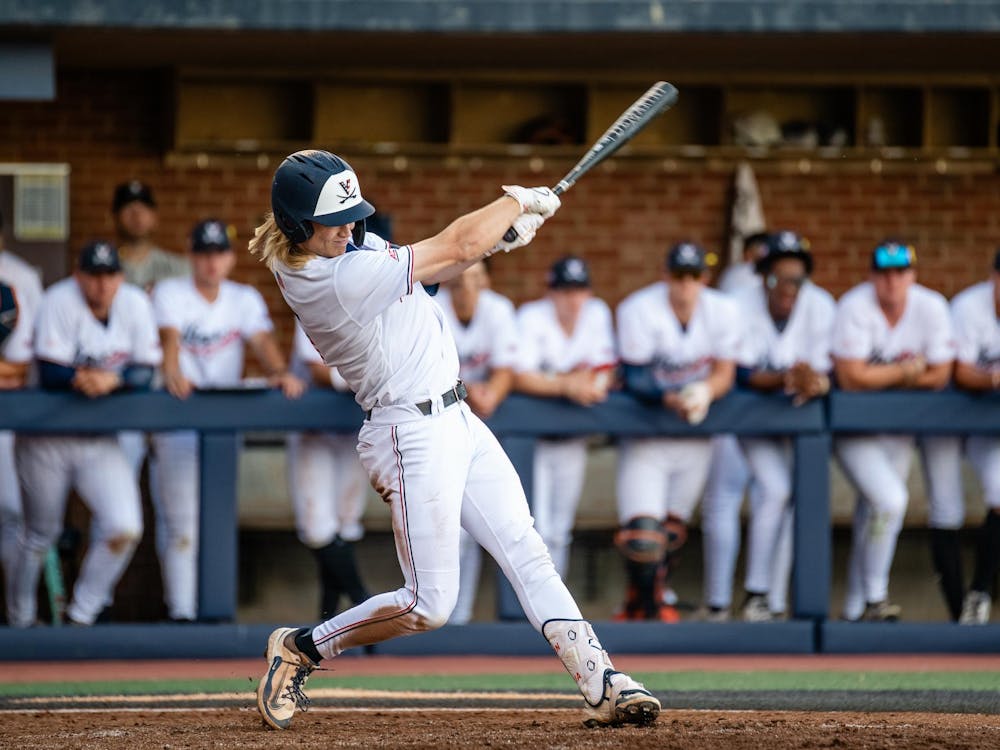To some, the postponement of the Virginia/Penn State football game scheduled for last night seemed like an appropriate measure in light of Tuesday's tragedy. To others, playing the game would have been a welcome distraction from a national nightmare.
The soundness of the ACC's decision to cancel all conference participation in athletic events through the weekend was at first questioned - outside of the ACC, only the Big East and Pac-10 originally committed to cancel their games as well.
But yesterday, when the NFL made a decision to put all of its Week 2 games on hold, all Division I-A programs followed suit and canceled football games for the weekend.
Major League Baseball commissioner Bud Selig stated yesterday that no baseball games will be played until Monday. His decision raises the total of postponed games to 91 - the most in 83 years - since World War I. Prior to this week, MLB hadn't canceled a full day of games since President Franklin D. Roosevelt's death in 1945.
"The more I thought about it, I couldn't rationalize starting before Monday," Selig said in his announcement yesterday.
Additionally, many national golf, auto racing, soccer, hockey, boxing, cycling, horse racing and running events also have been either canceled or postponed this week.
The severity and surprise of the attack that took place on Tuesday has no precedent in American history; however, the decision to cancel and postpone sporting events in response to an American crisis has occurred before.
On December 7, 1941, the New York Giants hosted the Brooklyn Dodgers in football in front of 55,051 spectators who were clueless about the bombing of Pearl Harbor. But during the game, a public address announcement informed Colonel William J. Donovan that he was being paged by Washington. Then, later, another announcement told all Navy men in the audience that they were to report to their posts immediately, and that all Army men must report the following day.
With America at war on Jan. 1, the U.S. Army banned all New Year's Day bowl games scheduled on the West Coast as a precaution against large public gatherings that the Japanese could view as targets. The Army's decree was responsible for the only Rose Bowl held outside of Pasadena, Calif. - Oregon State defeated Duke, 20-16, in Durham, N.C.
During World War II, President Roosevelt urged baseball and football to continue in hopes of providing a national distraction and sense of normalcy. But after large numbers of NFL players were drafted, the Cleveland Rams suspended operations in 1943. In 1945, the NFL Dodgers were forced to fold. In the same year, Major League Baseball canceled the All-Star game to cut transportation costs. With the world engulfed in war, the 1940 and 1944 Olympics were canceled.
Perhaps the most debated decision on whether to continue sporting events occurred after the assassination of President John F. Kennedy. Amid a shocked nation, college football and the AFL decided to postpone its games. In hopes of providing "normalcy," NFL Commissioner Pete Rozelle decided to allow games to be played only two days after the president's death. Rozelle later admitted that his decision, which some called tactless or selfish, was the biggest regret of his career.
After the assassination attempt on President Ronald Reagan in 1981, a highly awaited basketball matchup between Indiana and North Carolina went on as scheduled. The Academy Awards, however, set to air simultaneously, was postponed until the following day.
During the Gulf War in 1991, President George Bush decided that the Super Bowl should go on as scheduled as an act of defiance to Saddam Hussein.
The only other terrorist attack outside of Tuesday's tragedy to have an impact on the sporting world occurred at the 1972 Olympics. In Munich, Palestinian terrorists invaded the athletes' village and killed 11 Israeli athletes. International Olympic Committee President Avery Brundage held a memorial service and suspended the games for 34 hours, but then resumed action.
The decision to cancel sporting events can be a tricky and controversial one. Commissioners and other decision-makers must consider the impacts that their choices will have. But in the wake of Tuesday's incomprehensible devastation, it seems that the cancellations within the sports world were sound choices and - most would agree - the only choices.






